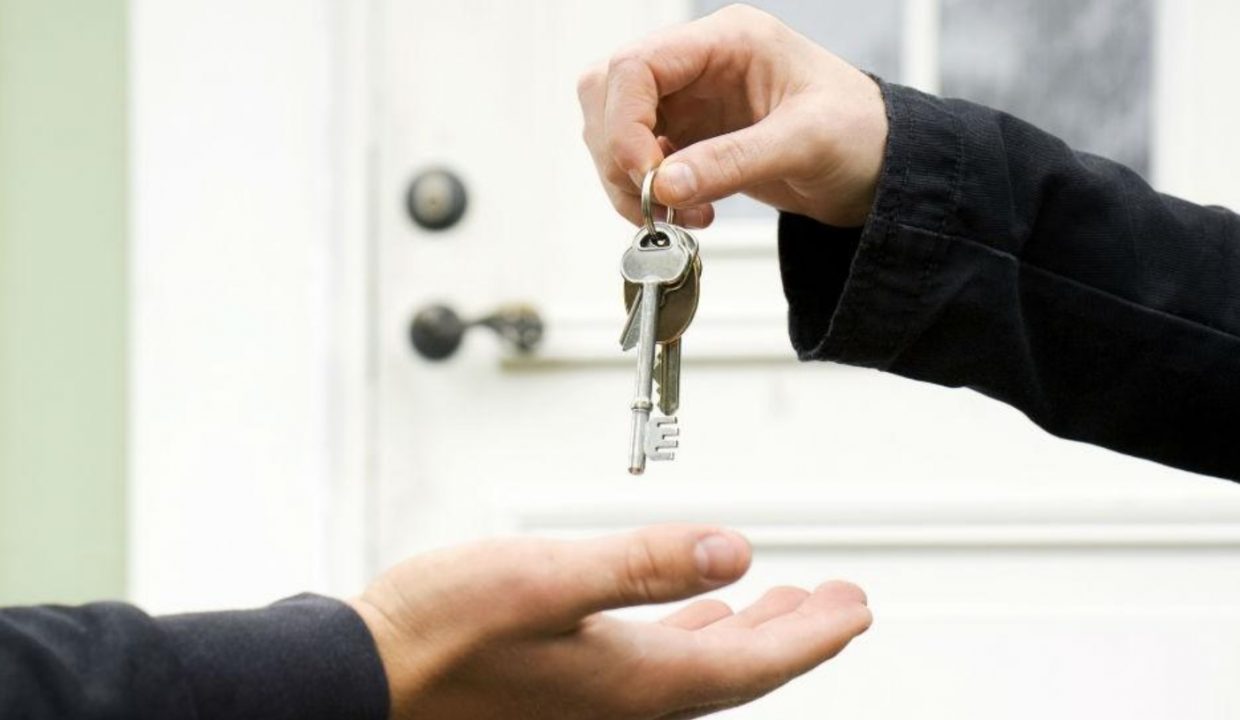
Fears of rental accommodation scarcity as a third of landlords contemplate selling up
Tax changes, rising interest rates and costs related to the healthy home standards have already seen some investors exit the market.
A dozen central Auckland apartments are up for sale at bargain prices because the overseas owner is pulling out.
“For a lot of our landlord or investor clients, the cost of compliance for Healthy Homes, cost of mortgages are all going up so it’s putting a lot of financial pressure on a lot of people out there. That’s why we see sales like this, with multiple properties going to market at the same time,” said Scott Dunn, sales manager at City Sales.
Dunn is selling the portfolio on the owner’s behalf – a trend he says is growing.
“We have phone calls with people saying, ‘I just don’t want to be a landlord anymore’,” he said.
It’s a similar situation for one Palmerston North-based owner of investment properties.
“It’s an investment, right? So we’re wanting to make some benefit off it and with this interest deductibility rule and tenancy law, it’s become quite difficult to be a landlord,” said landlord Aveen Mitra.
Many landlords are struggling with the Government’s decision to phase out interest deductibility.
Previously, 100 percent of interest could be claimed as an expense by residential landlords but it’s being incrementally phased out over five years until eventually they won’t be able to do it at all. There is an exemption though for new builds.
A recent survey of property investors showed 32 percent were contemplating selling their rental properties because of that tax change.
The Auckland Property Investors Association is worried rental accommodation could become scarce if too many landlords exit the market.
“If we see a decrease in the number of landlords who want to be one, we are certainly at a big risk of losing that. Even if a small percent – say 1 percent – leave, that’s 5000 properties we’re talking about,” said president Kristin Sutherland.
On the flip side though, that could benefit first-home buyers.
“If the first-home buyer can withstand the high interest rates for a couple more years, then they should absolutely get into the market right now,” Dunn advised.
But it’s those who can’t afford to buy a home who could be the biggest losers – as rental stock goes down and rents almost certainly go up.

매도를 고려하고 있는 임대시장의 1/3 때문에 우려가 커지는 임대 숙소 부족
세금 변화, 이자율 상승, 건전한 주택 기준과 관련된 비용 상승으로 이미 일부 투자자들이 시장에서 빠져나가고 있다.
오클랜드 중심가 아파트 12채가 해외 소유주가 철수하면서 헐값에 매물로 나와 있다.
“많은 집주인 또는 투자자 고객들에게 주택 유지 준수 비용, 모기지 비용이 모두 상승하고 있어 많은 사람들이 재정적으로 큰 압박을 받고 있다. 그렇기 때문에 여러 부동산을 동시에 시장에 내놓는 판매가 이루어지고 있다.”라고 City Sales의 영업 매니저인 Scott Dunn은 밝혔다.
Dunn은 소유주를 대신하여 주택 포트폴리오를 판매하고 있으며, 이러한 추세는 점점 더 늘어나고 있다고 말한다.
“우리는 ‘더 이상 집주인이 되고 싶지 않다’는 사람들의 전화를 받는다.” 고 그는 덧붙였다.
Palmerston North에 거주하는 한 투자 부동산 소유주도 비슷한 상황이다.
“투자자로서 수익을 내고 싶은데 이자 공제 규정과 임대차법으로 인해 임대인이 되기가 상당히 어려워졌다.” 고 임대주인 Aveen Mitra는 말했다.
많은 임대인이 이자 공제를 단계적으로 폐지하기로 한 정부의 결정으로 어려움을 겪고 있다.
이전에는 주택 임대인이 이자의 100%를 비용으로 청구할 수 있었지만 5년에 걸쳐 점진적으로 폐지되어 결국에는 전혀 청구할 수 없게 될 것이다. 다만 신축 건물의 경우 예외가 있다.
최근 부동산 투자자를 대상으로 한 설문 조사에 따르면 32%가 세금 변경으로 인해 임대 부동산 매각을 고려하고 있는 것으로 나타났다.
The Auckland Property Investors Association 에서는 너무 많은 집주인이 시장에서 빠져나가면 임대 숙소가 부족해질 수 있다고 우려하고 있다.
“임대인이 되고자 하는 임대인의 수가 줄어든다면, 우리는 분명히 큰 위험에 처하게 될 것이다. 1%라는 적은 비율의 임대인만 떠나더라도 5000개의 숙소를 잃게 되는 셈이다.” 고 Kristin Sutherland 사장은 밝혔다.
하지만 반대로 생각하면 첫 주택 구매자에게는 이득이 될 수도 있다.
Dunn은 “생애 첫 주택 구매자가 몇 년 더 높은 이자율을 견딜 수 있다면 지금 당장 시장에 뛰어들어야 한다.” 고 조언했다.
그러나 임대 재고가 감소하고 임대료가 거의 확실하게 상승하기 때문에 주택을 구입할 여력이 없는 사람들이 가장 큰 손실을 입을 수 있다.
